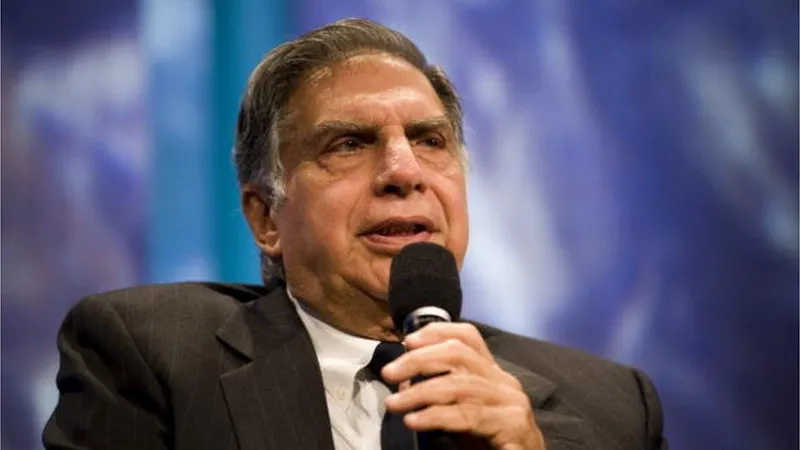Ratan Tata, who has passed away at 86, was a highly respected leader in India and known worldwide. He headed the Tata Group, a massive company with over 100 businesses, employing around 660,000 people and generating more than $100 billion in revenue every year.
The Tata Group, founded by Jamsetji Tata, has been around for 155 years and includes well-known brands like Jaguar Land Rover and Tata Steel.
Tata’s leadership style blended business with giving back to society. He believed in making lives better through his company’s practices.
As Peter Casey, who wrote a book about the Tata Group, pointed out, many of the companies are ultimately owned by a charitable trust, emphasizing philanthropy alongside profit.
Ratan Tata was born into a Parsi family in 1937 and had a strong educational background. He studied architecture in the U.S. at Cornell University, where he also learned to drive and fly. After returning to India in 1962 to care for his grandmother, he joined the Tata Group at the suggestion of JRD Tata, a relative and his mentor.
Starting in a steel plant, Tata gained hands-on experience before taking on leadership roles. In the 1990s, he was appointed as the group’s head, despite facing criticism and skepticism regarding his appointment.
Under his leadership, Tata made bold moves, acquiring companies like the British steelmaker Corus and luxury car brands Jaguar and Land Rover. One of his most significant successes was buying Tetley, making Tata the second-largest tea company in the world. However, some ventures, like the Nano car, struggled to gain lasting success.
Tata’s character shone through during difficult times. After the Mumbai terror attacks in 2008, he promised to support the families of employees who were harmed and invested over $1 billion to rebuild the damaged Taj Mahal Palace hotel.
Later in his career, Tata returned briefly to lead the Tata Group during a management dispute but faced controversy surrounding this transition.
Described as modest and disciplined, Tata prepared a daily handwritten to-do list and approached business with a calm demeanor. He was known for his reflective nature, acknowledging past mistakes, such as not valuing workers adequately during a factory strike.
In his vision for India, Tata spoke about the importance of equal opportunities for all citizens and emphasized the need for leaders to set an example by not showcasing their wealth.
His legacy as a humble yet powerful figure in business will be remembered. This summary gives insight into Ratan Tata’s life and contributions, reflecting his unique approach to business and philanthropy, as reported by the BBC.
https://www.bbc.com/news/articles/cd11lz4vpr7o

